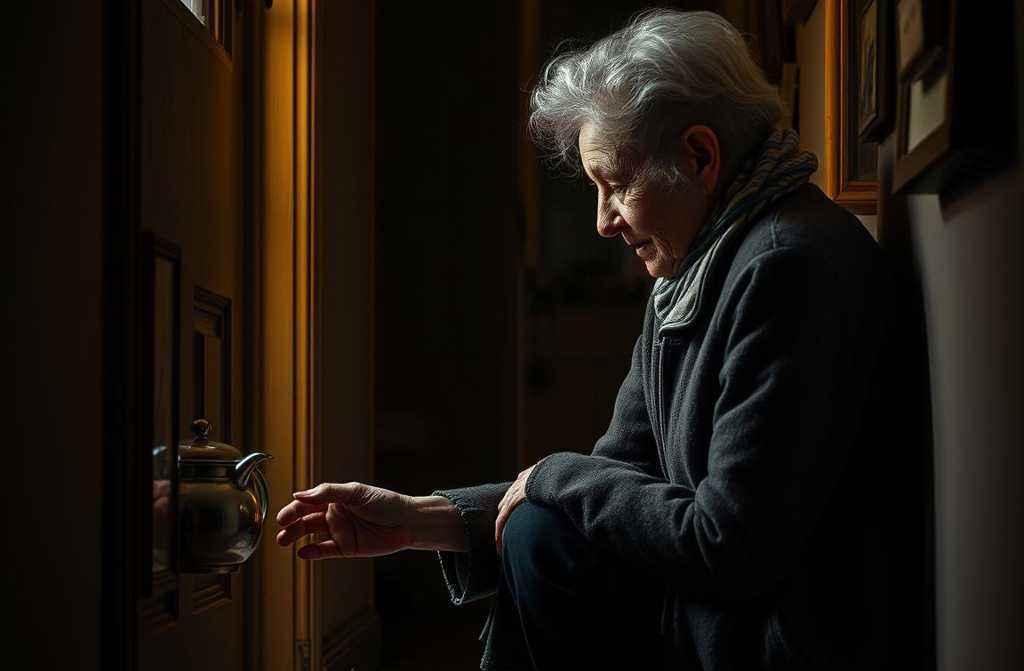You were never my friend, said the neighbour, tearing the letter in half.
Margaret stood on the doorstep of her flat, watching the scraps of paper flutter to the hallway floor. Her heart pounded as if she had run a marathon, though she had only climbed to the third floor.
Susan, wait, she tried to stop her neighbour. Lets talk properly.
Whats there to talk about? Susan turned her back, fiddling with her door keys. Its all been said. Your letter said enough.
Margaret bent down, gathering the torn pieces with trembling fingers. The letters blurred before her eyes as tears welled up.
Susan, love, just hear me out, she pleaded.
Dont call me love, Susan snapped without looking back. Its *Mrs. Harper* to you.
The door slammed shut with such force that the windowpanes rattled. Margaret was left alone, clutching the torn fragments in her hands.
She slowly rose, leaning against the wall. A storm of emotions swirled inside herhurt, shame, confusion. How had it come to this? Just that morning, theyd shared tea in her kitchen, gossiping about the new downstairs neighbour who played loud music at night. And now
Margaret retreated to her flat and sat at the kitchen table. Before her lay a copy of the very letter Susan had just destroyed. The letter she had written three nights ago in utter despair.
That evening, she had suffered a mild heart attacknot severe, but frightening enough to make her believe the end had come. Lying on the hallway floor, gasping for breath, shed realised how alone she was. Her son lived in Australia, her daughter in another city, and her husband had passed years ago. No one to call for help.
When the pain subsided, she had dragged herself to her sons old computer and poured her fears onto the screenhow terrified she was of dying alone, how she longed for someone to talk to, how unbearable the silence had become.
And then she had written the words she now regretted most: *”Youre lucky, Susan. Your children live nearby, your grandchildren visit. And me? Im just an old woman fading away in an empty flat. I envy you, if Im honest. I envy you terribly.”*
By morning, she had wanted to throw the letter away. But then her daughter called, unloading her work troubles, her husbands drinkinganother draining conversation. Distraught, Margaret had posted the letter anyway. To Susan. Her only friend.
Now she sat there, cursing her foolishness.
From next door came familiar soundsSusan moving about, the clatter of dishes. This was usually the time they shared tea. Margaret would brew it strong, Susan would bring biscuits. Theyd chatter for hours.
She pressed her ear to the wall. The comforting sounds now twisted the knife deeper.
Margaret returned to the table, rereading the letter. Yes, she had written a terrible thing. Yes, she had hurt her friend. But was fifteen years of friendship really so fragile?
They had met when Margaret first moved in. Her husband had been ill, and Susan had helpedfetching medicine, sitting with him when hospital visits were needed.
After his funeral, Susan had kept her from drowning in griefvisiting daily, forcing her to eat, distracting her with conversation. They had been through everything together. Illnesses, holidays, losses.
And now, one stupid letter had nearly ruined it all.
Margaret called her daughter.
Mum? came the clipped reply. Im at work.
Emily, Ive had a terrible row with Susan.
Well, make up then. Youre grown women.
She wont speak to me. Said I was never her friend.
Mum, I really cant do this now. Meeting in ten. Well talk tonight, alright?
The line went dead.
That evening, she heard voices in the hallSusan arriving home with someone. A stranger.
Come in, Patricia, Susan said warmly. Ill put the kettle on.
Wont the neighbours mind?
Oh, who cares? Susan scoffed. Just a bunch of cranky old women. One upstairs especiallyalways complaining. Too much noise, too much mess
Margaret froze by the door, cheeks burning. So this was how Susan saw her. A nagging old nuisance.
She had never complained without reason. Only when it was unbearable.
The next morning, she knocked on Susans door with a peace offeringfreshly baked scones, Susans favourite.
Susan, please. Can we talk?
Silence. Then footsteps. The door didnt open.
I made scones. Just like you like.
I dont want your scones, came the muffled reply. And weve nothing to say.
Margaret sighed. She left the plate by the door.
By evening, the scones were gonea small hope. But the next day, the plate reappeared, washed, with a note: *”Thank you for the scones. S. Harper.”*
Formal. Cold.
Days passed in grey emptiness. Without Susan, everything felt hollow. Her daughter called out of duty, her son barely remembered she existed.
Then, at the shop, she ran into PatriciaSusans friend.
Youre Margaret, arent you? Patricia asked. Susans neighbour?
Yes. And youre her?
An old colleague. She helps me with my grandson sometimes. Wonderful woman.
She is.
She mentioned things are strained between you. A shame. At our age, real friends are priceless.
Margaret said nothing.
You know, Patricia added softly, Susans struggling too. She misses you. Blames herself for overreacting.
Margarets heart leapt. She said that?
She did. But prides stopping her from admitting it.
That night, Margaret sat by the window, thinking. Maybe there was still hope.
The next day, she knocked again.
Susan, I know youre there. Lets talk properly.
Silence.
Patricia told me youre upset too. Please, lets not be stubborn. Fifteen years of friendship is worth more than one stupid letter.
A pause. Then a quiet voice: Do you really mean that?
Of course! Susan, youre my dearest friend. Im lost without you.
The locks clicked. The door opened. Susan stood there, eyes red.
Come in, she said. Ill put the kettle on.
They sat at the kitchen table, tea between them. Awkward at first, then slowly, the words returned.
Remember when we first met? Susan smiled. You dropped your shopping, and we spent twenty minutes chasing tins down the stairs.
Margaret laughed. And then you invited me in for tea.
I thought, *what a lovely woman*.
And I thought, *what a kind neighbour*.
The ice thawed.
Margaret, Susan said quietly, some of what you wrote wasnt wrong. I *am* lucky. And I forget how hard it is for you.
Margaret reached for her hand. We both messed up. But we fixed it.
They talked late into the night, the rift healing with every word.
As Margaret left, Susan said, I shouldnt have torn that letter.
Why?
To remind us how precious friendship isand how easily we can break it.
Margaret nodded. They had learned their lesson.
And the torn pieces of the letter? Left in the binuseless now, a reminder of pride almost costing them everything.







